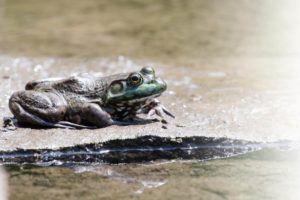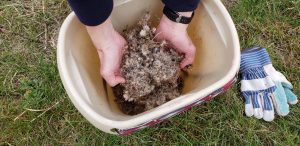
We live in an interconnected system. To heal the land requires that we face the threats to it head on: industrialized agriculture, climate change, weakened regulatory protections, and careless polluters. This year, PRN made significant progress in how we view the land and how we heal it together.
Land & Water Conservation Fund
In February, Congress voted to permanently reauthorize the Land and Water Conservation Fund (LWCF). The bipartisan legislation passed both the House and Senate and was signed by the President. The LWCF is important because it helps communities in Illinois and across the country protect and conserve national parks, wildlife refuges, forests, and critical habitat. Permanent reauthorization of LWCF is a huge step forward, and it is a goal PRN has worked towards for years.
Dog Tooth Bend
Thousands of acres of floodplain land in Dog Tooth Bend in southern Illinois will be placed into wetland and floodplain easements. These will provide relief to farmers whose lands have been rendered unfarmable by Mississippi River floods and gives us an opportunity to restore unique floodplain and wetland habitat.
ReGenerate IL Summit
The ReGenerate IL Summit took place in March 2019. With our partners in ReGenerate IL, PRN is working with farmers to heal the land by finding more ecologically sustainable ways of farming and expanding markets for regenerative and environmentally responsible food sources. Expanding this movement is critical to its success, and the summit connected farmers with buyers, growers, suppliers, researchers, and commercial consumers.
Plant Health Monitoring Program
PRN has led the charge in building awareness of the threats posed by volatile herbicides through our Tree and Plant Health Monitoring Program which allows people to document herbicide damage to our crops, trees, and wildlife habitat. Our staff and amazing volunteers have collected data from around the state, documenting symptoms of herbicide-related injury. PRN plans to issue a summary of the findings this winter.
Nutrient Loss Reduction Strategy
In this past legislative session, we worked on two bills that support conservation agricultural practices in Illinois, both of which passed. One resolution was in support of the Nutrient Loss Reduction Strategy (NLRS), and the other added soil health to enabling legislation of the Soil and Water Conservation Districts, making this officially part of their mission statement.
Increasing Biodiversity

We worked with farmers and landowners to promote and protect pollinators. This spring we installed plantings of native flowering plants on four farms, and we will work with two more farms this fall. Seeds gathered from these locations will be cleaned, dried, and distributed to farms and private landholdings that want to protect and increase biodiversity.
The work done to heal land in 2019 is evidence of the impact donations from our members has in Illinois. We did so much this year, and we cannot wait for the challenges, old and new, that we will face together in the years to come.







